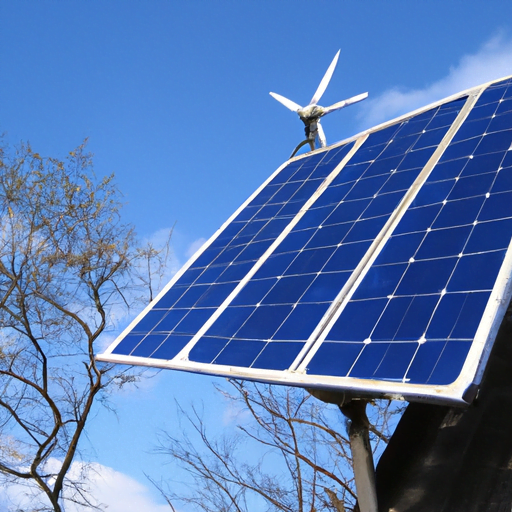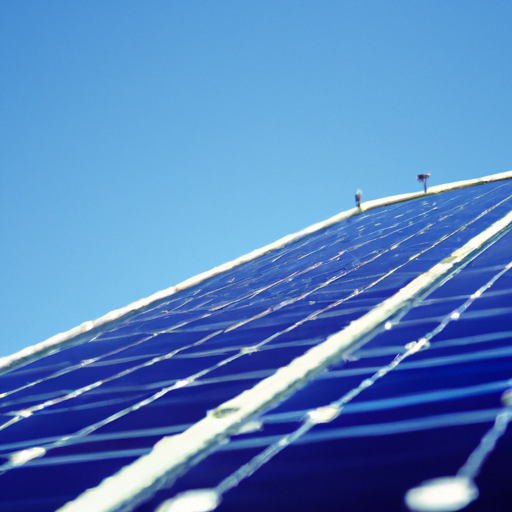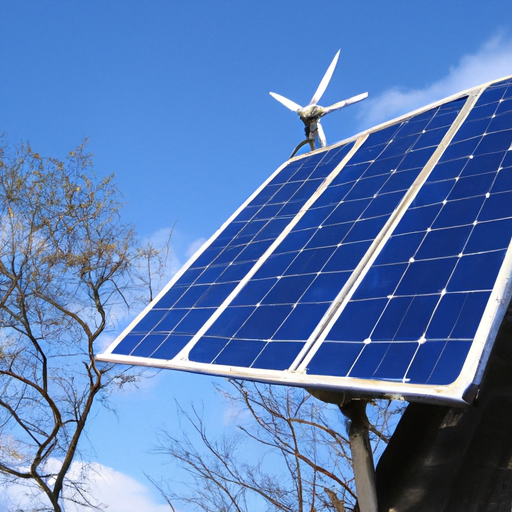Have you ever dreamt of escaping the hustle and bustle of the city, disconnecting from the power grid, and embracing a self-sustainable lifestyle? Off-grid living offers the perfect opportunity to do just that. But with so many options available, how do you choose the best off-grid solution for your needs? In this article, we will delve into the world of off-grid living and explore the different options available to help you make an informed decision.
When it comes to off-grid living, there are several factors to consider. Firstly, you need to assess your energy needs. Depending on whether you are looking to power a cabin in the woods or a full-fledged house, the energy requirements will differ. Secondly, you need to consider your location and the available resources. Is solar power a viable option in your region? Or would wind power be a more suitable choice? Lastly, you need to think about your budget. Off-grid solutions can vary greatly in cost, so it’s important to find a balance between your energy needs and your financial capabilities.
In this article, we will explore the various off-grid solutions such as solar power, wind power, hydroelectricity, and even biomass. We will discuss the pros and cons of each option, highlighting their efficiency, cost-effectiveness, and environmental impact. By the end of this article, you will have a better understanding of the different off-grid solutions available and be able to make an educated decision on which one is the best fit for your off-grid lifestyle. So, let’s dive in and discover the perfect off-grid solution for you.

Choosing the Best Off-Grid Solution
Off-grid living has gained popularity in recent years as people seek greater independence and sustainability in their lifestyles. Living off-grid means relying on alternative sources of energy and managing resources in a self-sufficient manner. This article will explore the different off-grid solutions available today, their benefits and challenges, and how to choose the best option for your needs.
Benefits of Off-Grid Living
There are several benefits to living off-grid. Firstly, off-grid living allows you to become more self-reliant, as you are not dependent on external sources of electricity or water. This can provide a sense of freedom and security, especially in remote or rural areas where access to utilities may be limited.
Secondly, off-grid living promotes sustainability and reduces environmental impact. By utilizing renewable energy sources such as solar power, wind power, and hydro power, you can significantly reduce your carbon footprint and contribute to the preservation of natural resources.
Lastly, off-grid living can provide significant cost savings in the long run. While the initial installation costs of off-grid systems may be higher than traditional utility connections, the absence of monthly bills can lead to substantial savings over time.

Challenges of Off-Grid Living
Living off-grid also comes with its challenges. One of the main challenges is the initial cost of setting up off-grid systems. Solar power, wind power, and hydro power solutions require substantial investment in equipment and installation. Additionally, off-grid living may require lifestyle adjustments, such as managing energy usage and water consumption more efficiently.
Another challenge is the need for proper maintenance and troubleshooting. Off-grid systems require regular monitoring and maintenance to ensure optimal performance. This may require some technical knowledge or the assistance of a professional.
Lastly, off-grid living may have limitations in terms of energy production and storage. Depending on the renewable energy sources available in your area, there may be fluctuations in energy generation, especially during periods of low sunlight or wind. Therefore, it is important to consider backup generator options or hybrid systems for uninterrupted power supply.
How to Prepare for Off-Grid Living
Before transitioning to off-grid living, it is important to thoroughly prepare and plan for the lifestyle changes that lie ahead. Here are some key considerations:
- Research and educate yourself: Familiarize yourself with different off-grid solutions and understand their benefits, costs, and maintenance requirements. Attend workshops, read books, and connect with experienced off-grid individuals or communities to gather valuable insights.
- Evaluate your energy needs: Assess your energy consumption patterns by conducting an energy audit. Determine the appliances and devices you will need to power off-grid and estimate your daily energy requirements. This will help you choose the appropriate renewable energy system for your needs.
- Assess the renewable energy potential: Evaluate the availability of solar, wind, and hydro resources in your location. Consider factors such as average sunlight hours, wind speed, and access to water sources. This will help you determine the most suitable off-grid solution for your specific environment.
- Design your off-grid system: Work with professionals or consult off-grid experts to design an energy system that meets your specific needs. Consider factors such as the size of solar panels, the capacity of battery storage, and the type of inverter required. Ensure that your system can meet your energy demands while allowing room for future expansion if needed.
- Plan for water and waste management: Research sustainable water solutions such as rainwater harvesting, well drilling, or water filtration systems. Additionally, consider efficient waste management systems, such as composting toilets or greywater recycling, to minimize your environmental impact.
- Learn basic maintenance and troubleshooting: Familiarize yourself with the maintenance requirements of your off-grid systems. Learn how to monitor the performance of solar panels, maintain battery storage systems, and troubleshoot common issues. This knowledge will help you optimize the lifespan and efficiency of your off-grid solutions.
By adequately preparing and planning, you can ensure a smooth transition to off-grid living and maximize the benefits of your off-grid system.
Conclusion
Choosing the best off-grid solution requires careful consideration of various factors, such as energy needs, available resources, and environmental impact. While each off-grid solution has its advantages and challenges, it ultimately depends on your specific requirements and circumstances.
Solar power solutions offer a reliable and sustainable source of energy, especially in areas with ample sunlight. Wind power solutions harness the power of the wind to generate electricity and are ideal for locations with consistent wind patterns. Hydro power solutions utilize flowing water to generate energy and are suitable for areas with accessible water sources.
Additionally, battery storage solutions play a crucial role in storing excess energy generated by renewable sources for later use. Hybrid systems that combine multiple renewable energy sources can optimize energy generation and storage.
Backup generators provide a reliable backup power source during periods of low energy production or emergencies. However, they should be used as a secondary solution in conjunction with renewable energy sources to minimize environmental impact.
Water and waste management systems should be designed to maximize efficiency and minimize environmental impact. Sustainable water solutions and efficient waste management systems are key aspects of off-grid living.
Lastly, building design and energy efficiency play a significant role in maximizing the efficiency of off-grid systems. Incorporating energy-efficient appliances, passive solar heating, and cooling techniques, and optimizing insulation can further reduce energy consumption and enhance the performance of your off-grid solution.
In conclusion, the best off-grid solution is subjective and depends on your specific needs, available resources, and environmental considerations. By thoroughly researching and planning, you can choose the off-grid solution that best aligns with your values and lifestyle goals, allowing you to enjoy the benefits of self-sufficiency, sustainability, and cost savings in your off-grid journey.




